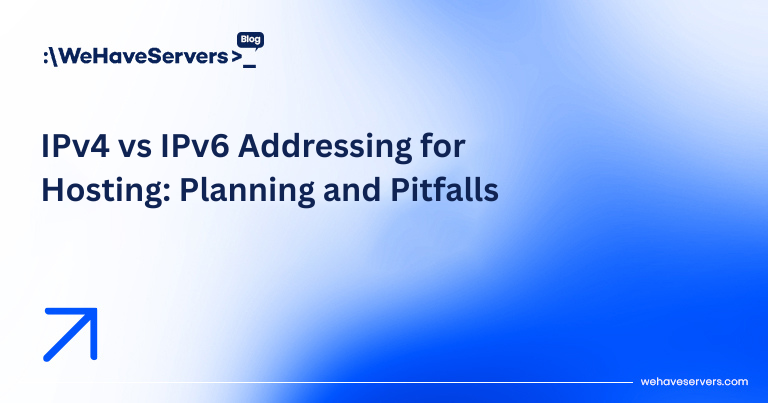
Nginx vs Apache: Which Web Server Is Faster in 2025?
Nginx vs Apache: Which Web Server Is Faster in 2025?
When it comes to serving websites and applications, Nginx and Apache HTTP Server remain the two most popular open-source web servers in 2025. Together, they power more than 50% of the internet. For sysadmins and developers, the decision between them isn’t just philosophical — it directly impacts performance, scalability, and operational efficiency.
In this article, we’ll compare Apache and Nginx across modern workloads: static content, TLS offloading, reverse proxying, and high concurrency scenarios. We’ll also examine benchmarks, configuration differences, and hosting use cases so you can decide which server better fits your infrastructure in 2025.
🔹 Architecture Overview
Apache
Apache was released in 1995 and has a highly modular design. Its biggest strength is flexibility. It supports multiple Multi-Processing Modules (MPMs) that define how it handles requests:
prefork– creates one process per request (legacy, heavy).worker– threads per process, lighter than prefork.event– non-blocking, similar to Nginx’s event-driven model.
Nginx
Nginx, launched in 2004, was designed for high concurrency from the ground up. It uses an event-driven, asynchronous architecture. Instead of spawning new processes for each request, a small number of worker processes handle thousands of concurrent connections efficiently.
This difference is why Nginx quickly became the go-to for reverse proxies, load balancers, and content delivery.
⚡ Benchmark Performance in 2025
Recent benchmarks on servers running Ubuntu 24.04 LTS with Intel Xeon Gold and AMD EPYC CPUs reveal clear patterns:
- Static Files (CSS, JS, Images): Nginx consistently outperforms Apache, serving 2–4x more requests per second under high concurrency.
- Dynamic Content (PHP-FPM, Python, Node.js): Both are similar when used as a reverse proxy to application servers. The bottleneck becomes the app, not the web server.
- TLS/SSL Handling: With OpenSSL 3.2 and TLS 1.3, Nginx handles more simultaneous encrypted connections with lower CPU usage.
- Memory Footprint: Apache with prefork is heavy; event MPM reduces usage, but Nginx still uses ~40% less RAM at scale.
In raw numbers: On a 16-core EPYC with 32 GB RAM, Nginx sustained ~120k RPS on static files, while Apache (event MPM) peaked at ~70k RPS. Latency under load was also lower with Nginx (p95 latency 12ms vs 30ms).
🛠️ Configuration & Flexibility
Apache:
- Extremely flexible with modules (
mod_rewrite,mod_ssl,mod_php). - Supports
.htaccessfiles, letting shared hosting customers override configs. - Steeper learning curve when tuning for performance.
Nginx:
- Simpler, declarative configuration syntax.
- No
.htaccess; all configs require admin-level edits (better for performance, less for shared hosting). - Native reverse proxy, caching, load balancing, rate limiting.
🔒 Security Considerations
- Nginx: Smaller attack surface by design. Its event-driven model avoids fork-based DoS vectors. Supports modern TLS features faster.
- Apache: Long history, large codebase. Needs careful disabling of unnecessary modules to reduce attack surface.
Both integrate well with Fail2Ban, WAFs (like ModSecurity), and front-end DDoS protection services.
💡 Use Cases in 2025
- Choose Apache if: You rely heavily on
.htaccess, need legacy compatibility, or run many small shared-hosting environments. - Choose Nginx if: You need maximum throughput, serve static assets/CDN workloads, run high-concurrency apps (APIs, microservices), or want built-in reverse proxying and caching.
Many enterprises use a hybrid approach: Nginx as a front-end reverse proxy/load balancer, Apache behind it for compatibility with legacy apps.
📊 Real-World Example: WordPress at Scale
A benchmark test with WordPress 6.5 + PHP 8.3 + MariaDB 11 showed:
- Nginx + PHP-FPM: 35% lower response times under 10k concurrent users.
- Apache (event MPM) + mod_php: Easier to set up, but consumed ~2x RAM under same load.
This is why most large WordPress hosting providers moved to Nginx (or LiteSpeed, a commercial alternative).
✅ Conclusion
In 2025, Nginx remains the faster choice for high-performance and high-concurrency environments. Apache, while more flexible for legacy apps and shared hosting, cannot match Nginx’s efficiency for modern workloads. For most new deployments, especially APIs, microservices, and high-traffic sites, Nginx should be your default.
At WeHaveServers.com, we recommend Nginx-based stacks for customers aiming at scale and performance, while still supporting Apache for legacy compatibility. The best choice often comes down to your workload and operational model — but if speed and efficiency are your goals, Nginx wins in 2025.
❓ FAQ
Is Nginx always faster than Apache?
For static files and high concurrency, yes. For simple PHP sites with low traffic, the difference may be negligible.
Can I run Apache and Nginx together?
Yes, a common setup is Nginx as a reverse proxy in front of Apache for legacy support.
Which web server uses less RAM?
Nginx typically uses 30–40% less memory than Apache under heavy load.
Does Apache still support HTTP/2 and TLS 1.3?
Yes, but Nginx implementations are usually more efficient and better optimized for newer protocols.
What about LiteSpeed?
LiteSpeed is a commercial alternative that often outperforms both, but it is not open-source.



